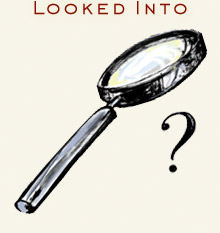Emdashes—Modern Times Between the Lines
The Basics:
About Emdashes | Email us
Ask the Librarians
Best of Emdashes: Hit Parade
A Web Comic: The Wavy Rule
Features & Columns:
Headline Shooter
On the Spot
Looked Into
Sempé Fi: Cover Art
The New Yorker Archive DVD (Almost) Without Tears
Filed under: Looked Into Tagged: Complete New Yorker, technology

 Don't panic! The headline below (from MSNBC) is a little scary, but it's about now-vaulted legal obstacles, not technological obsolescence. Truly, the only bearable form of digital archive for magazines like The New Yorker and National Geographic, whose layout, typeface, art, and ads are fundamental to both enthusiasts and historians, are fully scanned pages, not incomplete and typo-ridden plain text (hello, Nexis!). I especially like the sentence that almost implies that the NYer could no longer resist the new century once Mad bravely showed the way. Since The Complete New Yorker is going for $63 on Amazon (on sale Sept. 20, much too far away), there should be a two-for-one deal for $125. I'd buy it, and I know I'm not alone. Throw in the '50s issues of Modern Screen, and I'd be happier than a bucket of steamer clams.
Don't panic! The headline below (from MSNBC) is a little scary, but it's about now-vaulted legal obstacles, not technological obsolescence. Truly, the only bearable form of digital archive for magazines like The New Yorker and National Geographic, whose layout, typeface, art, and ads are fundamental to both enthusiasts and historians, are fully scanned pages, not incomplete and typo-ridden plain text (hello, Nexis!). I especially like the sentence that almost implies that the NYer could no longer resist the new century once Mad bravely showed the way. Since The Complete New Yorker is going for $63 on Amazon (on sale Sept. 20, much too far away), there should be a two-for-one deal for $125. I'd buy it, and I know I'm not alone. Throw in the '50s issues of Modern Screen, and I'd be happier than a bucket of steamer clams.
Only one concern (besides the dough for all those freelance pieces to which I signed away my rights; where has it gone? gone with the wind): I know the NYer archive's searchable, but can one copy and paste (obviously, within all those delightfully blurry limits), or is this hard, forbidding PDF-land? There's only one way to find out, and it'll be from the thrillingly named Vince Pingel. I hope he can revive his prime-time P.I. show now that he's getting the attention he deserves. How does the theme song go again? "He delivers your wishes as quick as Kris Kringle/He makes desperate housewives wish they were single/When jailers' keys jingle and bitter hearts tingle it's Vince...Vince Pingel!" Hum a few bars and I'll fake it.
New Yorker DVD archive is almost history before it starts
Business doesn't always follow the blueprint.
Nobody knows that better than Vince Pingel, managing director of Western Blue Print, a 100-year-old Kansas City company.
In October, Pingel's handiwork will hit the masses in the form of "The Complete New Yorker," a $100, eight-DVD set of all 4,109 copies of the iconic magazine, which Western scanned for posterity.
The release will cap a seven-year struggle to start the project, which was besieged by a U.S. Supreme Court decision, insurance questions about shipping priceless original copies to Kansas City and the magazine's skepticism about making money on the archive.
Both parties declined to give the value of the deal.
The groundwork for the project began in 1997, when a small Lenexa company owned by Pingel was creating industry buzz after scanning all 1,200 issues of National Geographic for a 32-disc CD-ROM set.
That project opened up the possibility among publishers that they could tap a new revenue stream selling historical copies. Pingel scanned MAD magazine's catalog, and The New Yorker called.
It was enough to persuade Western Blue Print, Kansas City's dominant blueprint producer, to buy Pingel's company, Document Automation Development, in 1999.
But in 2001, the Supreme Court handed down a decision against The New York Times, disallowing the electronic distribution of archived stories done by freelancers who had copyrights on the material.
Pingel knew the lawsuits against National Geographic would come in droves considering all the freelance work in the copies he scanned. Worse, a contract that would have indemnified his company was never signed.
Pingel and the company's lawyers braced for the worst.
"I just hoped we would never be named," Pingel said. "I thought: 'This could be huge. This could kill us.'"
In the summer of 2003, The New Yorker's general counsel, Edward Claris, called Pingel. National Geographic had been sued 26 times but had never lost. And Pingel's company was never named as a defendant.
The courts were making a key distinction. The Kansas City firm had simply reproduced the entire contents of National Geographic. In contrast, The New York Times lifted text from its stories and reformatted them on the Web.
Pingel said this was a technical decision National Geographic made in 1997 to scan the entire page -- ads and all -- instead of lifting searchable text, which proved costly and error-prone. Had they gone down the latter road, the courts may have considered that reformatting like The New York Times.
"I was lucky," Pingel said.
That brought The New Yorker back to the table. Claris had long sought to offer up a digital collection of the magazine, which includes such gems as a profile of Adolph Hitler in 1936 and poems by F. Scott Fitzgerald.
"It's an amazing treasure trove," Claris said.
New Yorker DVD archive is almost history before it starts [Charlie Anderson, MSNBC]
Categories: NYer, Archive, Magazines, Law



